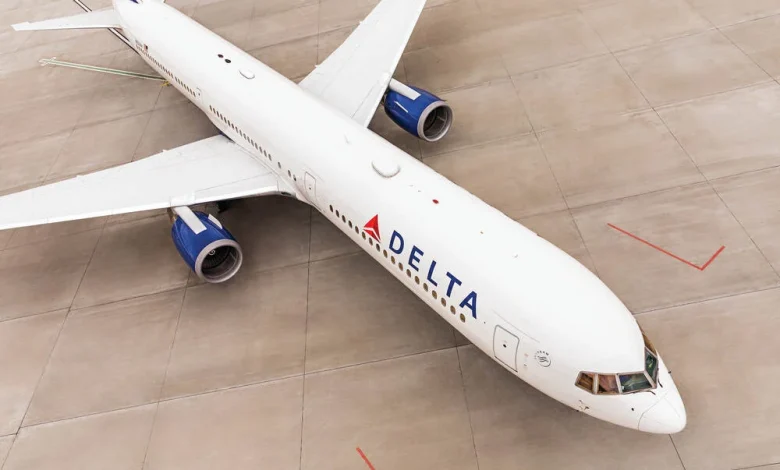Delta Air Lines Unveils Game-Changing Expansion Strategy With New Routes To Singapore, Manila, And Seoul Incheon And A New Fleet Of Airbus A350-1000 Aircraft For Long-Haul Success

Published on
October 29, 2025
Delta Air Lines has commenced its global venture by announcing the addition of its Singapore, Manila, Seoul Incheon routes. The new routes tactically allow Delta to take its first moves on the rising demand on the Asian market. This revolutionary extension to the Delta market come along with the new Airbus A350-1000 jets that Delta has acquired. The technology of the A350-1000, with its advanced fuel consuming capabilities, long range capabilities, and customer satisfying configurations, directly speaks to Delta’s purpose of expanding its range of market on offer to address the transpacific routes. Given Delta’s planned focus on high demand A350-1000 markets, Delta is poised to address international traveler needs on long haul routes.
Delta Air Lines is set to expand its reach into Asia with a strategic move that focuses on long-haul routes to key destinations such as Singapore, Manila, and Seoul Incheon. This initiative is part of the airline’s broader plan to enhance connectivity in high-demand international markets, underscoring its ambition to establish a stronger foothold in the Pacific region.
This shift comes after Delta’s announcement of new flights to Hong Kong and Riyadh, signaling a renewed focus on expanding service to both the Middle East and Asia. With the European network approaching capacity, Delta’s leadership has turned its attention to markets with high growth potential in Southeast Asia, the Pacific Rim, and beyond.
Focused Growth on Asia
Delta’s international growth strategy is now centered around Asia, particularly Southeast Asia, where the airline sees immense opportunity. As the European network nears saturation, the airline’s focus has increasingly shifted towards the Asia-Pacific market, which offers vast untapped potential for both leisure and business travelers.
One of the key components of Delta’s plan involves the addition of new routes connecting major U.S. hubs such as Los Angeles (LAX) and New York (JFK) directly to Seoul Incheon, the home base of its joint venture partner, Korean Air. This strategic move aims to bolster Delta’s transpacific operations, creating smoother connections and making the airline a more competitive player against United Airlines, which currently dominates U.S.-Asia travel routes.
Strengthening Transpacific Operations
Delta’s decision to increase its presence in Asia by expanding routes from Los Angeles and New York to Seoul Incheon is a significant step in strengthening its position in the competitive transpacific market. Historically, United Airlines has had a commanding lead in U.S.-Asia routes, particularly from its San Francisco hub, but Delta’s new strategy is designed to close the gap and better compete with United’s established network.
The addition of flights to Singapore and Manila is expected to fill gaps in Delta’s network and help the airline better serve growing demand in the Pacific region. These routes will also complement existing flights and offer more direct options for passengers traveling between the U.S. and key Asian cities, thus improving Delta’s competitive standing on the global stage.
The airline’s reliance on its modern fleet of Airbus A350 aircraft, which includes the A350-900 and the upcoming A350-1000, will be crucial in executing this expansion. These advanced aircraft are well-suited for long-haul flights, with their increased range, fuel efficiency, and superior passenger comfort making them an ideal fit for transpacific routes.
Fleet Expansion and the Role of the Airbus A350
Delta’s upcoming fleet expansion is poised to play a central role in the airline’s long-haul ambitions. The Airbus A350-1000s, expected to become Delta’s flagship aircraft, offer a number of advantages that will enhance the airline’s ability to operate longer and more profitable routes.
With greater fuel efficiency, reduced maintenance costs, and improved passenger comfort, the A350-1000s are equipped to meet the demands of increasingly competitive international markets. As these new aircraft join Delta’s fleet, the airline is expected to introduce additional ultra-long-haul flights to Asia, the Middle East, and Africa.
The A350-1000s will allow Delta to tap into emerging markets and expand service to destinations that were previously less accessible, enhancing the overall connectivity of its global network. With these aircraft, Delta aims to streamline its operations and increase profitability on long-haul routes while offering passengers a premium experience across its international network.
The Strategic Role of Los Angeles
Los Angeles (LAX) has emerged as a key base for Delta’s Asia expansion strategy. Experts believe that LAX, with its substantial local market and strong product alignment, will be the central hub for many of Delta’s new Asia-bound flights. The airline’s recent decision to relaunch service to Hong Kong from LAX, instead of its Pacific Northwest hub in Seattle, further supports this strategy. The move signals a pivot towards focusing on LAX as a primary gateway for transpacific routes.
Los Angeles offers robust demand and significant connecting traffic, making it an ideal starting point for Delta’s new flights to Asia. The airline’s growing presence at LAX, ranked among its top hubs after Atlanta and New York, positions it to better serve both premium and leisure travelers with more non-stop options to destinations across Asia.
Enhancing Competition in the Pacific
United Airlines continues to dominate the transpacific market, particularly through its San Francisco hub, where it operates numerous direct flights to Asia. However, Delta’s renewed focus on long-haul flights from Los Angeles, New York, and other strategic hubs signals the airline’s intent to challenge United’s supremacy in the U.S.-Asia segment.
Despite United’s strength in the Pacific, Delta’s position at LAX is a significant advantage, as it ranks as one of the airline’s top hubs. The addition of more transpacific routes from Los Angeles will allow Delta to leverage its existing market presence and better compete for the growing number of travelers flying between the U.S. and Asia.
Moreover, Delta’s partnership with Korean Air enhances its competitive edge by offering more flexible flight options and streamlined connections. While many passengers prefer to fly with Delta-operated aircraft, the joint venture with Korean Air gives the airline access to an expanded network and better coordination across the Pacific.
Passenger Preferences and the Korean Air Partnership
The joint venture between Delta and Korean Air has received mixed reviews from passengers. While many prefer flying on Delta’s modern fleet, some travelers continue to favor Korean Air, particularly on routes where the airline’s in-flight experience is seen as superior. The ongoing collaboration between the two airlines, however, continues to give passengers greater choice and flexibility when flying between the U.S. and Asia.
As the joint venture grows, Delta’s ability to offer seamless connectivity and an expanded range of flight options will only improve, giving passengers more opportunities to explore Asia and beyond.
Looking Ahead: A Stronger Asia Focus for Delta
Delta’s new long-haul routes to Singapore, Manila, and Seoul Incheon reflect a deliberate shift in the airline’s global strategy. As the European market reaches its limits, the airline is increasingly focusing on high-growth international destinations in Asia and the Pacific region.
With a modern fleet of Airbus A350 aircraft, expanded service from key U.S. hubs, and a growing presence in Asia, Delta is positioning itself as a formidable player in the global aviation landscape. The airline’s move to bolster its transpacific network not only improves connectivity for passengers but also allows Delta to compete more effectively with industry leaders like United Airlines.
Delta Airlines has announced new routes to Singapore, Manila, and Seoul Incheon, and added new Airbus A350-1000 aircraft to its fleet to build on its long-haul capabilities, enhance service to Asia and strengthen its transpacific network.
Delta has recognized the importance of meeting its customers’ need with innovative service and business strategies; the airline will build on its long-term sustainability to provide on-time and convenient services and remain competitive in the fast-changing travel market.





